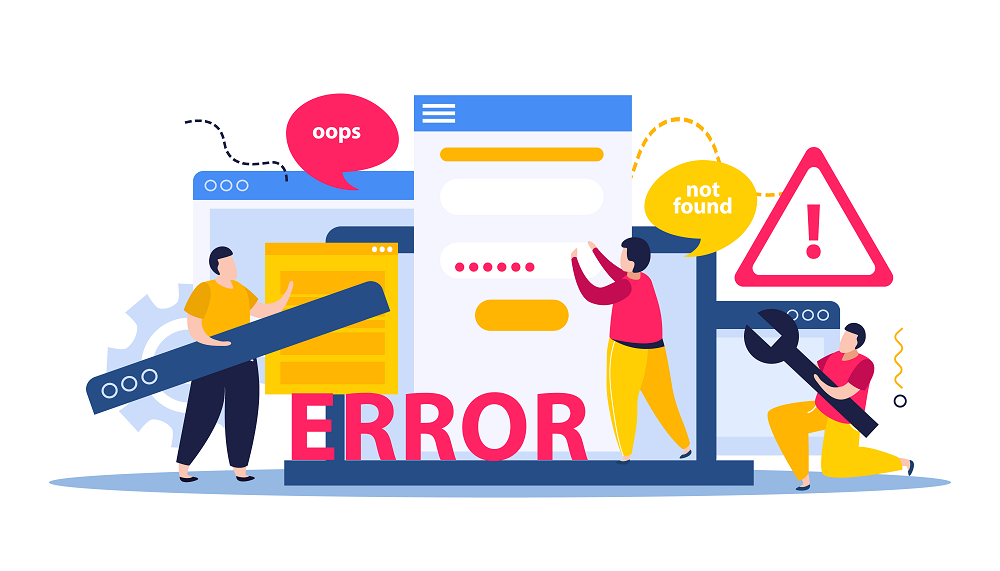Editorial Note: We are an inventory management software provider. While some of our blog posts may highlight features of our own product, we strive to provide unbiased and informative content that benefits all readers.
Inventory errors refer to inaccuracies or discrepancies in a business’s inventory data, which can occur due to various reasons such as manual data entry, theft, or incorrect tracking. These errors can have a significant impact on a business, leading to lost sales, decreased customer satisfaction, and increased costs.
For example, if a business’s inventory data shows that a product is available when it is actually out of stock, customers may place orders that cannot be fulfilled, resulting in lost sales and negative customer experiences. Additionally, inventory errors can lead to overstocking or understocking, which can result in increased costs or missed sales opportunities.
Table of Contents
The Need for an Efficient Order Fulfillment System:
An efficient order fulfillment system is essential for businesses to meet customer expectations and remain competitive in today’s fast-paced market. Without an efficient order fulfillment system, businesses may struggle to deliver products to customers on time, leading to dissatisfied customers and lost sales.
An efficient order fulfillment system helps businesses streamline their order processing, pick and pack products accurately, and ship them quickly and cost-effectively. Additionally, an efficient order fulfillment system can help businesses reduce inventory errors and improve inventory management, which can lead to cost savings and increased revenue.
Therefore, implementing an efficient order fulfillment system is crucial for businesses to meet the demands of today’s consumers and stay competitive in the market.

Understanding Order Fulfillment Software:
Order fulfillment software is a type of software that helps businesses automate and manage their order fulfillment processes. It typically includes features such as inventory management, order processing, picking and packing, and shipping management. Order fulfillment software can be cloud-based or installed on-premises, and it can be customized to meet the specific needs of a business.
Order fulfillment software helps businesses streamline their order processing and reduce manual errors. It provides real-time visibility into inventory levels, enabling businesses to manage their stock levels more effectively. With order fulfillment software, businesses can automate order processing, reducing the time it takes to process orders and reducing the likelihood of errors.
Order fulfillment software can also improve picking and packing accuracy by providing instructions to warehouse staff and ensuring that the correct items are picked and packed. Additionally, order fulfillment software can automate shipping management, generating shipping labels and tracking information, and streamlining the shipping process.
There are different types of order fulfillment software available, including standalone systems and integrated systems that can be integrated with other business systems such as inventory management or accounting software. The choice of order fulfillment software will depend on the specific needs of the business and the complexity of its order fulfillment processes.
The Role of Order Fulfillment Software in Preventing Inventory Errors:
Order fulfillment software plays a crucial role in preventing inventory errors by providing real-time visibility into inventory levels and automating the order fulfillment process. Here are some specific ways in which order fulfillment software can help prevent inventory errors:
- Real-time tracking of inventory: Order fulfillment software provides real-time visibility into inventory levels, allowing businesses to track inventory levels accurately. This ensures that businesses always have accurate information about their inventory levels, reducing the risk of overstocking or understocking.
- Automation of order processing: Order fulfillment software automates the order processing process, reducing the likelihood of manual errors. This means that businesses can process orders more quickly and accurately, ensuring that the correct items are picked and packed.
- Reduction of human error: Order fulfillment software reduces the risk of human error in the order fulfillment process by automating many of the steps involved. This includes picking and packing, which can be prone to errors when done manually.
- Accurate order picking and packing: Order fulfillment software provides instructions to warehouse staff, ensuring that the correct items are picked and packed. This reduces the risk of errors in the picking and packing process, ensuring that customers receive the correct items.
By providing real-time visibility into inventory levels, automating the order fulfillment process, reducing human error, and ensuring accurate order picking and packing, order fulfillment software can help prevent inventory errors and improve overall inventory management.
Benefits of Using Order Fulfillment Software:
There are several benefits to using order fulfillment software in businesses. Here are some of the key benefits:
Improved customer satisfaction: Order fulfillment software helps businesses process orders more quickly and accurately, ensuring that customers receive the correct items on time. This can lead to improved customer satisfaction and repeat business.
Increased efficiency and productivity: Order fulfillment software automates many of the steps involved in the order fulfillment process, reducing the time and resources needed to process orders. This can increase efficiency and productivity in the warehouse and reduce overall costs.
Cost savings: Order fulfillment software can help businesses reduce the costs associated with inventory management, such as overstocking or understocking. It can also reduce the costs associated with manual errors and rework.
Improved inventory management: Order fulfillment software provides real-time visibility into inventory levels, allowing businesses to manage their inventory more effectively. This can help businesses reduce inventory carrying costs and improve overall inventory management.
Scalability: Order fulfillment software can be customized to meet the specific needs of a business, making it scalable as the business grows. This means that businesses can continue to use the same software as they expand, reducing the need to invest in new systems.
Order fulfillment software can help businesses improve customer satisfaction, increase efficiency and productivity, reduce costs, improve inventory management, and scale as the business grows.
Choosing the Right Order Fulfillment Software:
Choosing the right order fulfillment software is an important decision for businesses as it can have a significant impact on their overall order fulfillment process. Here are some key factors to consider when choosing order fulfillment software:
Integration with existing systems: Businesses should consider whether the order fulfillment software can be integrated with their existing systems, such as inventory management, accounting, and shipping software. Integration can help reduce manual errors and improve overall efficiency.
Scalability: Businesses should consider whether the order fulfillment software can scale as their business grows. This can help ensure that the software continues to meet their needs as the business expands.
Customization: Businesses should consider whether the order fulfillment software can be customized to meet their specific needs. This can help ensure that the software is tailored to the unique requirements of their business.
Ease of use: Businesses should consider whether the order fulfillment software is easy to use and navigate. This can help ensure that staff can quickly and easily learn how to use the software.
Support and training: Businesses should consider whether the order fulfillment software provider offers adequate support and training. This can help ensure that staff are equipped to use the software effectively and can receive help if issues arise.
Cost: Businesses should consider the cost of the order fulfillment software, including any ongoing fees or maintenance costs. It’s important to ensure that the software provides a good return on investment.
By considering these factors, businesses can choose order fulfillment software that meets their specific needs and helps them improve their overall order fulfillment process.
Implementation and Maintenance of Order Fulfillment Software:
Implementing and maintaining order fulfillment software requires careful planning and ongoing effort. Here are some key steps that businesses should follow to implement and maintain order fulfillment software successfully:
- Plan the implementation: Before implementing the software, businesses should define their goals and objectives for the software and develop a plan for the implementation process. This should include setting timelines, assigning responsibilities, and identifying any potential challenges.
- Data migration: Businesses should ensure that their existing data is properly migrated to the new software. This includes customer data, product information, and order history.
- Training: Once the software is implemented, businesses should provide training to staff to ensure that they understand how to use the software effectively. This can help reduce the risk of errors and improve efficiency.
- Testing and monitoring: Businesses should test the software thoroughly to ensure that it is functioning as expected. They should also monitor the software regularly to identify and address any issues or problems that arise.
- Ongoing maintenance and updates: Order fulfillment software requires ongoing maintenance and updates to ensure that it continues to function properly. Businesses should ensure that they have a plan in place to address any software updates or upgrades that may be required.
- User feedback: It’s important to gather feedback from users on an ongoing basis to identify any issues or areas for improvement. This feedback can help businesses improve their order fulfillment process and ensure that the software is meeting their needs.
By following these steps, businesses can implement and maintain order fulfillment software effectively, improving their overall order fulfillment process and reducing the risk of inventory errors.
Conclusion:
Inventory errors can have a significant impact on businesses, resulting in lost revenue, decreased productivity, and damaged customer relationships. An efficient order fulfillment system is essential for preventing inventory errors, and order fulfillment software plays a critical role in achieving this.
Order fulfillment software is a valuable tool for businesses looking to improve their order fulfillment process, reduce the risk of inventory errors, and provide better customer service.
With the right software and processes in place, businesses can improve their operations, increase profitability, and achieve greater success.
Take a Quiz Test - Test Your Skill
Test your inventory management knowledge. Short multiple-choice tests, you may evaluate your comprehension of Inventory Management.
